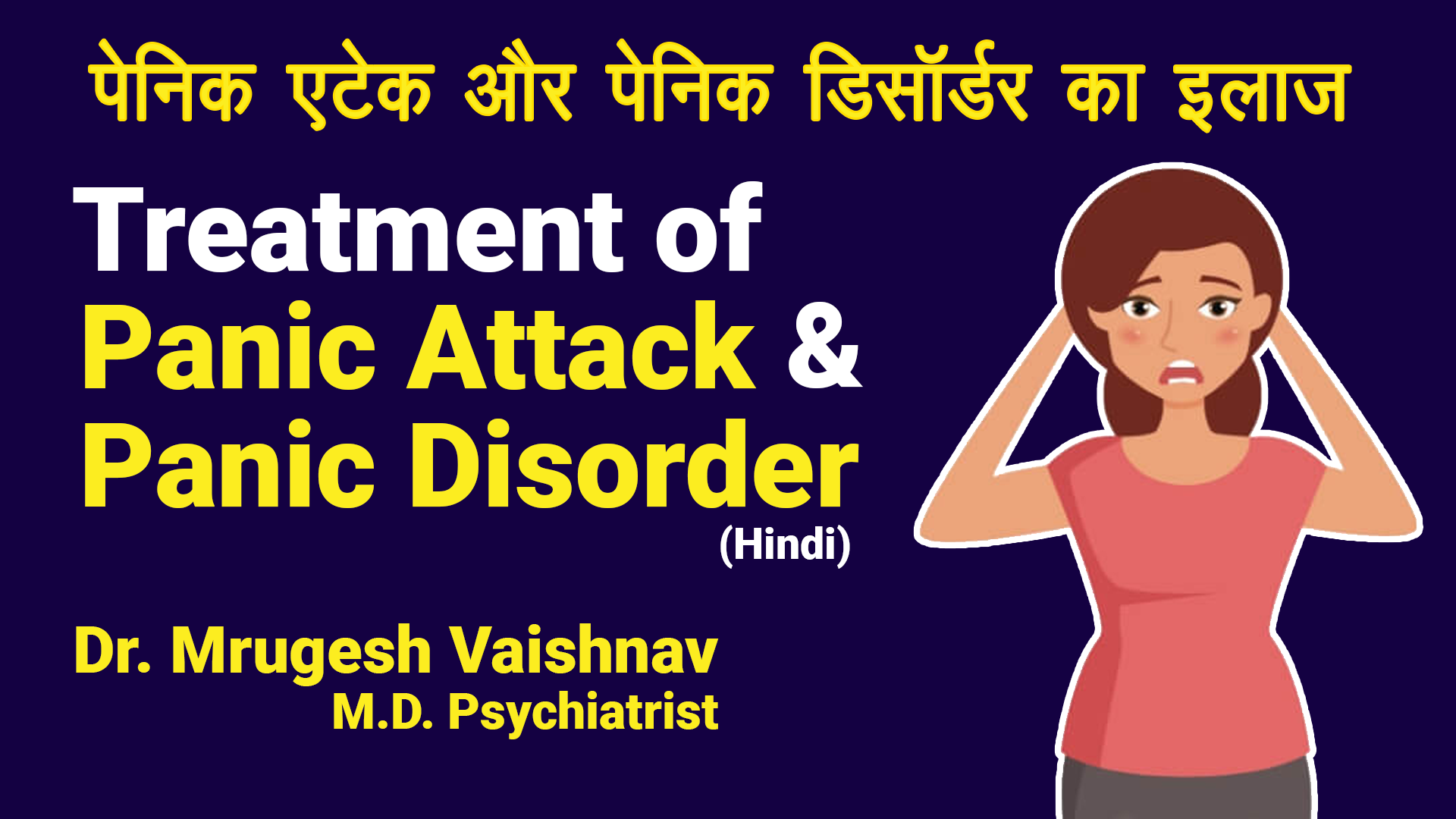Know what are the Treatment for Panic attack and Panic Disorder
Treatment of Panic attack starts when the person gets full knowledge about panic attacks and panic disorder. Why, How and because of which reasons panic attack and panic disorder occurs is discussed at length in our earlier 2 videos, namely Panic attack Symptoms, causes and types & second is What is Panic Disorder. Patient has to understand that each and every attack of anxiety and panic are not heart attack. If the patient has approached more than one specialist and all the reports are normal, then it is time to make oneself understand that there is no possibility of heart attack in him.
Here, one may ask the patient why physical symptoms of heart attack occurs. The explanation is, in a human brain limbic system exists, a part of it known as amegdala is responsible for emotions like anxiety, fear, frustration, impulsivity, etc. Usually pre-filtered cortex controls amegdala. When panic attack occurs, amegdala becomes hyperactive, pre-frontal cortex will not be able to control amegdala, hence its hyperactivity increases which will lead to hyperactivity of hypo thelemo pituitary adrenal gland axis, which will result into secretion of epinephrine, nor-epinephrine, adrenaline, etc. These chemicals are responsible for physical symptoms of panic attacks.
Researchers have found out that low level of serotonin in brain causes restlessness and discomfort, hence it is necessary to increase the serotonin level. So for the treatment of panic attack and panic disorder selective serotonin reuptake inhibitors like fluoxetine, fluvoxamine, paroxetine, sertraline, and escitalopram are given. As these medicines take 2-4 weeks in onset of its action, use of benzodiazepines likes clonazepam, lorazepam, etc. are advised. These medicines can be given sub-lingual to relief from the panic attack within 5-10 minutes.
The other drugs which can also be used are SNRI – Venlafaxine and Des-Venlafaxine, Tri-cyclins – Clomipramine and Imipramine and MAO inhibitors. Along with regular medication, following supportive measures should be taken.
1. Maintain sleep hygiene.
2. Breathing exercises
3. Progressive muscle relaxation
4. Stress management
5. To avoid panicogenic substances like tea, coffee, tobacco
6. Keeping a diary of panic attacks and to note down thoughts occurring at the time of panic attacks
7. Behaviour therapy
8. Cognitive behaviour therapy
9. Mindfulness therapy
One-third of the patients of panic disorder are recovered completely, one-third will have waxing and waning panic attack and one-third will have chronic course. If panic disorder is associated with depression, PTSD and OCD then treatment shall be continued for a very long time. For chronic treatment resistance cases, anti-psychotics, anti-epileptics, pregabalin, and gabapin can also be given.
Panic order is a disabling disease, hence the early detection, proper diagnosis by a psychiatrist and continuing medication regiment under his/her observations as per his/her advice is need of the hour. There are certain myths about medication of panic disorder like they are only sleeping pills, habit forming or addictive which is absolutely baseless. According to chemical changes in the brain medicines are given to make different chemical levels normal in the brain. In this time of COVID-19, large number of patients are affected with panic disorder in post-covid period. They require early detection and treatment to avoid long-term adverse consequences.
Let’s accept the scientific facts, acquire sufficient knowledge about panic attack and panic disorder, say goodbye to the myths of panic attack and panic disorder, take treatment of panic attack and panic disorder as per experts advice and keep our self mentally fit. Healthy Minds will keep Healthy bodies.
Namaskar..!!

